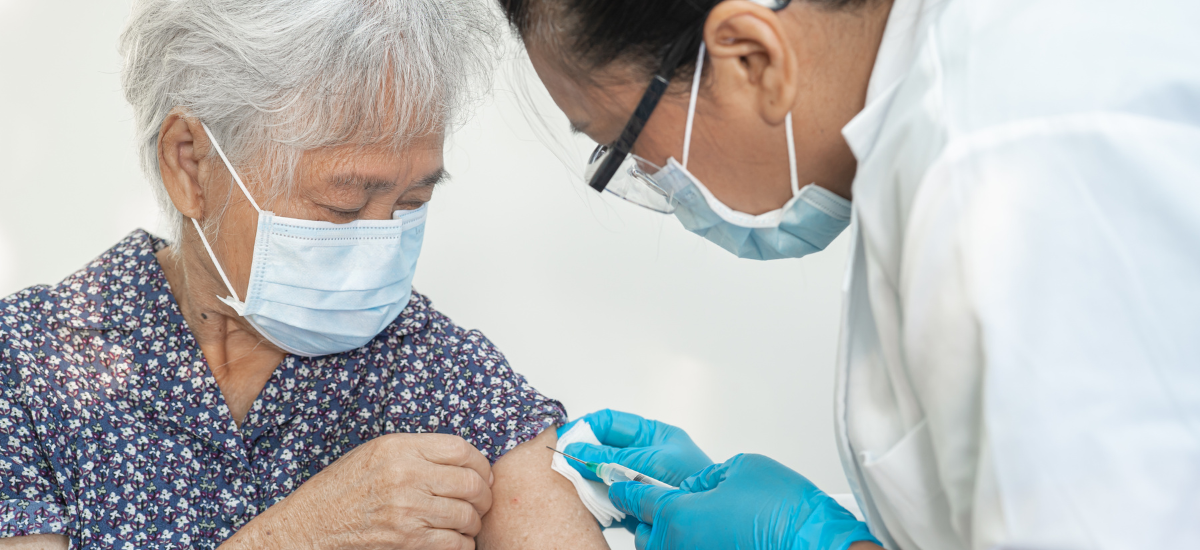
The Journal of Immunology (The JI), published by the American Association of Immunologists, is one of the most highly cited journals in the field of immunology and prides itself on sharing experimental immunology, including basic and clinical studies. Editors of The JI are actively working to expand the clinical and human data published in The JI. This includes recently updated criteria for human and clinical immunology submissions, a special collection published July 2025, and an ongoing call for papers.
Human and Clinical Immunology: An Evolving Landscape, featured in the July 2025 issue, includes an editorial, Brief Reviews, and Pillars of Immunology articles reflecting on the field. AAI News & Views spoke to Dr. Roshini Abraham, Co-Guest Editor of the Special Collection, about the future human and clinical immunology.
In your editorial, co-authored with Dr. Gerald Morris, you mention that “the field of human and clinical immunology stands at a pivotal moment.” Why is that and what do you hope to see come from this moment?
The pivotal moment we refer to is the combination of advancement in technology and methodology, coupled with advances in understanding human immunity, and a growing storehouse of immune-targeted therapies, based on functional immune pathways and cellular interactions that can be used or repurposed for different diseases.
I think there is an imperative need to capitalize on the aforementioned “moment in time” to revise medical education curricula, from medical school through residency and fellowship to create a strong emphasis on human immunology, as the immune system is critical to every organ system in the body. Current curricula in human/medical immunology are extremely limited, and awareness and application of immunology in clinical practice is highly uneven. Increasing awareness through effective training and dissemination of knowledge will ensure the next generations of clinicians/scientists have a proper understanding and appreciation to apply the principles of immunology to the diagnosis and treatment of human diseases.
In the last decade, what progress has there been in translating fundamental immunological concepts into clinical applications?
I think the biggest areas of progress have been in treatments, such as developing new therapies to target immune-mediated diseases. There has also been progress in diagnostic applications and our understanding of the fundamental concepts of human immunology and its relevance to disease pathobiology. The progress is very exciting, yet we have not arrived at our destination and need to continue to advance the field.
What excites you about the future of clinical immunology?
In short, everything about the human immune system and disease from birth to end-of-life. There are so many compelling applications to address acquired disorders of immunity, immunometabolism, infectious and inflammatory diseases, transplantation–organ and hematopoietic, pregnancy and neonatal medicine, and geriatric medicine. Specifically, I am excited about the potential of biological drugs, gene therapy, and gene editing cellular therapies to impact all these areas of immunology and health.
The JI recently changed its criteria for clinical and human manuscripts. Under these new criteria, how do you hope clinical immunology in The JI will grow?
There are several journals in the field of clinical and human immunology, and they all have slightly different scopes and target audiences. We hope that the redefined scope as well as the efforts to increase awareness of this section in The JI will attract authors to submit papers that provide deep mechanistic insights into the immunobiology of human disease or enhance our understanding and application of immune-mediated therapies and immunodiagnostics.
Why should researchers consider The JI when deciding to submit their clinical research?
The JI has a long and storied history in the field of immunology as a premier journal. Submitting to The JI allows authors to have their research in clinical and human immunology not only reach a core group of immunologists in AAI members, but also the next generation of trainees in immunology. This ensures future immunologists think and learn about the human immune system (in my mind, the pinnacle of immunology) and how research in this area can have a far-reaching and long-lasting impact, through understanding and translation of immunobiology.
Dr. Roshini Abraham serves as Associate Chief of Academic Affairs and Founding Director of the Diagnostic Immunology Laboratory at Nationwide Children’s Hospital, Professor of Clinical Pathology at The Ohio State University College of Medicine in Columbus, OH, and Clinical and Human Immunology Deputy Editor of The JI.
The full editorial and special collection can be found in The Journal of Immunology (The JI), published by the American Association of Immunologists. As one of the most highly cited journals in the field of immunology, The JI is committed to describing novel findings in all areas of experimental immunology, including basic and clinical studies.




